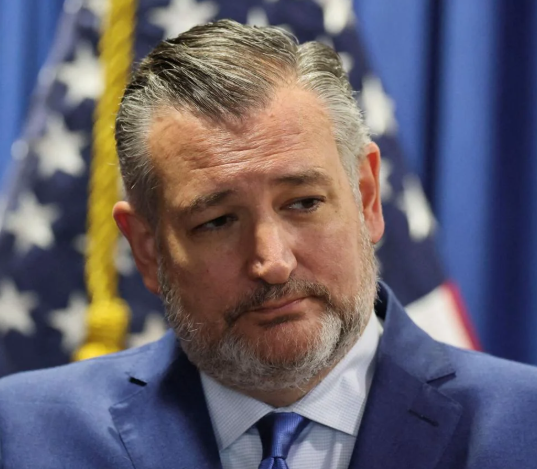Best Free Resources for Traders in 2025: From Charts to AI Alerts
December 01 , 2025

Senator Ted Cruz has publicly condemned government threats against broadcasters, highlighting concerns about free speech, press freedom, and the role of government oversight in media. His statements have sparked national debate about protecting journalists and upholding constitutional rights.
Senator Ted Cruz has issued a strong condemnation of government threats directed at broadcasters, emphasizing the importance of protecting free speech and press freedom in the United States. Cruz’s statements come amid growing concerns about government influence and pressure on media outlets, raising critical questions about the balance between regulation, accountability, and constitutional rights.
In recent months, reports have emerged of increased government scrutiny and threats against broadcasters, with some media organizations alleging attempts to pressure or intimidate journalists. These incidents have sparked concerns over potential violations of the First Amendment, which guarantees freedom of the press, and the broader implications for democracy in America.
Senator Cruz, a vocal advocate for constitutional liberties, responded to these reports by calling out government overreach and defending the essential role that independent media plays in holding authorities accountable. His comments have resonated with journalists, media watchdogs, and civil liberties organizations, highlighting a growing debate over the boundaries of government authority in regulating broadcasters.
In his public remarks, Cruz criticized the government for attempting to exert control over broadcasters through threats or intimidation tactics. He emphasized that the press serves as a vital check on power and that attempts to silence or influence journalists undermine democratic principles. Cruz stated:
“Freedom of the press is not negotiable. Any government attempt to threaten or intimidate broadcasters is a direct attack on the First Amendment and our democracy. The American people deserve a media free from undue influence.”
These remarks reflect Cruz’s ongoing commitment to defending constitutional rights and his broader stance on limited government interference in private and public sectors. By speaking out, Cruz aims to draw attention to the risks of government overreach and the necessity of safeguarding independent journalism.
The response to Cruz’s statements has been mixed, with many journalists and media organizations praising his defense of press freedom. Prominent media watchdogs have echoed Cruz’s concerns, noting that threats or coercive actions by government agencies could set dangerous precedents for journalistic independence and transparency.
Some members of the public have expressed skepticism, questioning whether government oversight is necessary to ensure accuracy and accountability in broadcasting. However, Cruz and his supporters argue that protecting journalists from intimidation is critical to maintaining a free and open society.
The controversy highlights ongoing tensions between government regulation and constitutional protections for free speech. Press freedom is a cornerstone of democracy, allowing citizens to receive accurate information and hold public officials accountable. Threats against broadcasters, whether perceived or real, can create a chilling effect, discouraging critical reporting and investigative journalism.
Legal experts note that the First Amendment provides robust protections against government interference in media, but the evolving landscape of digital media, social platforms, and government oversight introduces new complexities. Cruz’s statements underscore the need for vigilance in defending these rights in an era of heightened scrutiny and political polarization.
While some argue that government oversight of media is necessary to prevent misinformation and protect public interests, critics warn that threats or coercion cross a critical line. Cruz’s condemnation emphasizes that any government action perceived as intimidation undermines trust in both media and public institutions.
Observers note that maintaining a balance between accountability and independence is essential. Ethical journalism and regulatory oversight must coexist without compromising constitutional protections, ensuring that broadcasters can operate freely while upholding standards of accuracy and fairness.
The statements by Cruz have implications for broadcasters nationwide. Media organizations may feel emboldened to resist government pressure, citing support from prominent lawmakers like Cruz. Conversely, the controversy may prompt internal reviews of editorial policies, legal protections, and security measures to safeguard journalists from potential threats.
In an environment where misinformation and political polarization are increasingly prevalent, broadcasters play a crucial role in providing reliable reporting and maintaining public trust. Cruz’s advocacy for press freedom reinforces the importance of independence and transparency in media operations.
Cruz’s condemnation occurs within a broader political context, where debates over media credibility, government oversight, and freedom of expression have intensified. Lawmakers across the political spectrum continue to grapple with questions about the limits of regulation, the responsibilities of journalists, and the role of social media platforms in shaping public discourse.
By publicly opposing government threats against broadcasters, Cruz positions himself as a defender of constitutional liberties while drawing attention to the broader challenges facing the media landscape. His statements contribute to ongoing discussions about democracy, accountability, and the essential function of the press in American society.
The controversy is likely to continue as government agencies, media organizations, and advocacy groups respond to Cruz’s statements. Legal challenges, public hearings, and policy debates may follow, shaping the future relationship between government oversight and media independence.
Broadcasters may also implement internal policies to protect journalists from intimidation, strengthen legal protections, and ensure adherence to ethical reporting standards. Public awareness campaigns and advocacy initiatives may further highlight the importance of defending press freedom in an era of heightened scrutiny and political tension.
Senator Ted Cruz’s condemnation of government threats against broadcasters underscores the critical importance of protecting press freedom in the United States. As media organizations navigate complex legal, ethical, and political challenges, safeguarding independent journalism remains essential for democracy, transparency, and accountability. Cruz’s statements contribute to a vital national conversation about constitutional rights, government oversight, and the responsibilities of both public officials and media professionals in ensuring a free and open society.